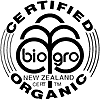Political Hotspot April 2024
In this political hotspot we will zoom in on two topics that are being negotiated within the EU institutions that could heavily impact organic food and farming: green claims and the carbon removal certification framework. New Genomic Techniques (NGTs), another topic of vital importance is touched upon in the welcome note and its dedicated section.
In March 2023, the European Commission published its proposal for a directive on substantiating green claims. Since then, the European Parliament has worked on this proposal, with its the final vote in Plenary on 12 March. Read IFOAM Organics Europe’s response to the vote in our press release.
What does this legislation entail and what does it mean for organic?
As IFOAM Organics Europe, we fully welcome and support the aim of the Green Claims Directive, namely preventing greenwashing. However, we have two major concerns.
Our first concern is about the proposed methodology to measure a product’s environmental impact. In the Commission’s proposal, this legislation measured a product’s impact on the environment only using the Product Environmental Footprint (PEF). Thanks to the organic movement’s advocacy, the proposal now allows for substantiation of green claims through other methodologies. This is great news for the transition to sustainable food systems, as the PEF’s environmental impact assessment excels at distinguishing between product categories, but unable to differentiate a product’s impact within those categories. This leads to absurd results where all fruits and vegetables are awarded an A, irrespective of the farming practice used, seasonality, or transport time. We therefore welcome that the Parliament has confirmed that there are methodologies than only the PEF to substantiate a green claim.
Our second concern relates to private organic standards. Because organic’s demonstrated environmental benefits, the Directive has excluded the organic label as defined in Regulation 2018/848 from its scope. Organic as detailed in the EU Organic Regulation is the EU’s only legally regulated agricultural system which is recognised for its environmental performance. However, while the EU organic label is excluded from Directive’s scope, private organic standards are not, even though these standards go beyond the EU Organic Regulation in terms of their environmental and social requirements. Nevertheless, as it stand now, private organic standards fall under the Green Claims Directive which would result in an extra, unnecessary, burden to private organic standards which already meet all requirements in the EU Organic Regulation. The Parliament did not introduce exemptions for private organic standards, but there could be the possibility for a fast-track procedure for such standards.
What are the next steps?
The EU’s Member States (Council) are currently working on this Directive’s proposal, and we expect the Council’s conclusions in June. This would mean that negotiations on this Directive between the
three EU institutions, or so-called ‘trilogues’, are likely to start after the EU elections. As IFOAM Organics Europe we will keep up our advocacy work.
For more information on green claims and IFOAM Organics Europe’s work on this issue, please visit our website’s food policy page and scroll down to ‘Food labelling’ or contact silvia.schmidt@organicseurope.bio. Do note that we prioritise our members’ requests.
Carbon Removal Certification Framework
The co-legislators achieved a provisional agreement on the certification framework for permanent carbon removals, carbon farming and carbon storage in products (CRCF). The European Parliament’s Committee on Environment, Public Health and Food Safety (COMENVI) already approved the agreement. As final ‘rubber stamp’ the Parliament’s Plenary and Council should adopt this agreement.
What is it about and what does it mean for organic?
According to the legislation, carbon farming can be certified with a temporary certificate with a minimum duration of 5 years. Two different types of carbon farming activities can be certified: carbon sequestration and soil emission reductions. By 2026 the Commission should review the possibility to include livestock emissions reductions in the scope of the legislation.
A standardised baseline should be“representative of the standard performance of comparable practices and processes in similar social, economic, environmental and technological circumstances and take into account the geographical context”. Such tool would “positively recognises the action of first movers who have already engaged in eligible activities”. However, these standardised baselines still need to be developed and in the meantime, and where it is not possible to set a standardise baseline, a project-specific baseline will be used. The project-specific baseline would not be able to recognise the efforts of first movers, such as organic farmers.
For carbon farming activities it is mandatory to demonstrate a biodiversity co-benefit. However, the definition of this objective expands in the final agreement from restoration of biodiversity and ecosystems to “soil health, as well as avoidance of land degradation”?. If soil carbon sequestration in itself was to be considered a contribution to soil health, this could the biodiversity objective is weakened.
What is next?
The European Parliament and the Council need to adopt the agreement. The impact of the legislation depends very much on aspects not defined within the CRCF – namely the definition of methodologies and the possible use of generated certificates.
For more information on organic and climate and IFOAM Organics Europe’s work related to carbon farming:
Visit our website or contact hanna.winkler@organicseurope.bio. Do note that we prioritise our members’ requests.
















